Share the Table
Michele Bennett, Chairperson
Carrie Hewitt, vice-president introduced Michele ‘a Virginia native who has lived in the Topsail area for nearly 10 years. She is currently using her graduate degree in her role as the Housing Specialist for an Assertive Community Treatment Team (ACTT). In this role, she works out in the community, providing services for clients with severe and persistent mental illness. Michele began volunteering at Share the Table on Sunday evenings with fellow church members from St. Philip’s Episcopal (Holly Ridge). Three years ago, she was elected as Treasurer to the Board of Directors but has happily passed on that role to another board member. Michele was elected to serve as Chairperson this year, her fourth year of elected service. ‘ Today, Michelle is filling for Dawn Ellis, Executive Director of Share the Table that serves Pender and Onslow Counties.
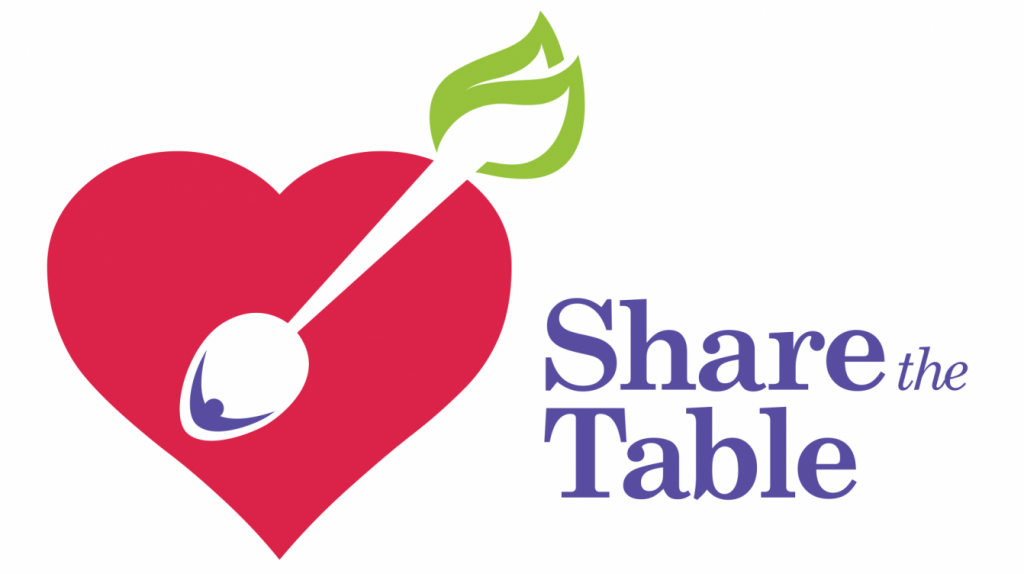
Michelle noted that “Share the Table, Inc. is a faith-based nonprofit 501(c)(3) organization supported by seven charter churches, community churches, civic organizations, and local businesses in Pender and Onslow Counties in North Carolina. Through our free community meal, food pantry and school backpack programs, we are feeding over 950 Pender and Onslow country residents per week.”
The Share the Table program
In normal times, Share the Table offers a food pantry in which clients can choose the food their family needs; and a warm food meal every Sunday for anyone with fellowship at the Share the Table warehouse, located on Hwy 50 between Surf City and Holly Ridge (12395 NC-50, Hampstead, NC 28443). In addition to the food warehouse, there is a Household ministry section with supplies for the home. Another program that Michele mentioned was ‘The MUNCH Backpack Program that aims to address child hunger in our local schools by providing at-risk children with backpacks of nutritious, child-friendly food to take home over the weekends during the school year.’ This program continues in summer months as well.
The clientele
Share the Table is a truly open program with no need to demonstrate a need. Clients with food insecurity have a lack of knowledge of where you are going to get your next meal. You do not know where supper will come from. Plus clients have lost jobs. Some clients are returning after long absences.
The need
In Pender County, 13.6% of people and 21.4% of children are food insecure. In Onslow County: 15.2% of people and 20.4% of children fit this category. With COVID a staggering 19-21% increase in food insecurity is projected in the two counties for next year.
This year Michele noted that the client demand has shown a 57% increase in food distribution needs due to COVID as clients lose jobs or have work hours cut. Even given the food shortages in food banks, Share the Table has distributed 54,800 lbs of food accounting for 5000 meals counting the backpack program.
The COVID-19 adjustment
Michele noted that COVID-19 restrictions has changed the way Share the Table operates its programs. Now clients drive up to receive pre-packaged food boxes and most of volunteers know clients so are able to adjust food boxes on the fly. However, the Household ministry section has had to close due to space limitations. The Sunday meal and fellowship program has changed to a warm food to go operation.
Although there is no shortage of volunteers, the volunteer’s profile has changed as some of the older volunteers at high risk of COVID have temporarily stepped aside.
How can you help?
When asked by the Kiwanis audience, Michele replied that the best way to contribute at this point in the pandemic is by a monetary donation to Share the Table
Donate online at <https://www.sharethetablenc.com/donate>
or
Make checks payable to:
Share the Table, Inc.
PO Box 4170
Surf City, NC 28445
You can learn more about Share the Table at their website <https://www.sharethetablenc.com/>
Topsail Beach
Steve Smith, Mayor
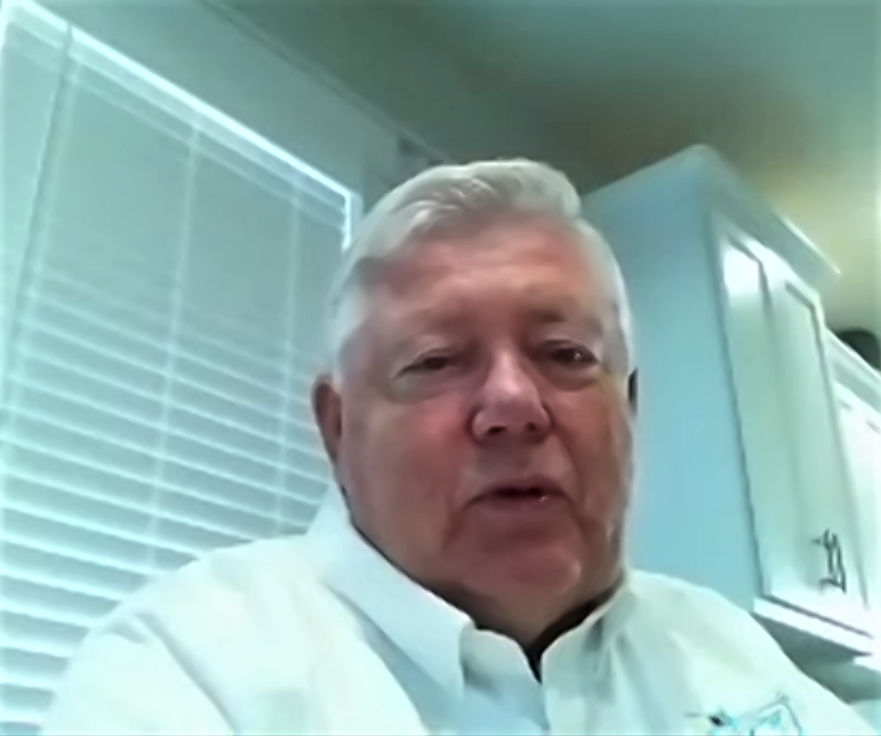
Steve Smith, Mayor of Topsail Beach, NC, and fellow Kiwanian presented an overview of happenings in Topsail Beach at our Club meeting, Tuesday, November 17. Mayor Smith noted that COVID-19 cases are increasing in town right now as they are across North Carolina and the Nation. He encouraged people to stay safe during the upcoming Thanksgiving Holiday.
Steve noted that Topsail Beach now has 24 hr. fire coverage as additional firemen have been added to their volunteer Fire Department. Another public safety improvement is the hiring of a detective for the Police Department to assist with the changing types of crimes that are occurring in Topsail Beach. An increase in white collar crimes, and drug cases results in more time needed to take prisoners to Burgaw as no lockup facility is available in Topsail Beach. Thus, patrolmen lose 4 hr of patrol time as prisoners are transported, so the new detective can assist in this process. With more people moving to Topsail Beach and Topsail Island for that matter, from large inland towns, more citations are being issued after vehicles stops due to issues with alcohol and drugs. Increase in out of towners is also resulting in more trash on beaches to remove.
Overall town finances are in good shape with a 1 yr reserve in the General Fund, a $7 million reserve in the Beach, Inlet and Sound Fund, plus $1 million in the Capital Improvement Fund. However, there will be an unknown impact from COVID on town finances during the next year.
Steve described a sound side project the Town is in partnership with the North Carolina Coastal Federation that will place a living sill at the Rocky Mount shoreline location in town. Topsail Beach also contracted with an engineering firm to investigate and propose possible solutions to sound side flooding, as well as street flooding through a grant of $1.6 million dollars from the State. This state grant was part of a $5 million dollar award to the three municipalities on Topsail Island for Hurricane Florence relief. The grant will also allow purchased of some land on the mainland for a future Emergency Operations Center.
One noted effect of climate change is a lowering of water table level in the Castle Hayne aquifer such that water levels are being drawn down and salt water intrusion is increasing particularly with the continued growth in eastern, mainland Pender County. Thus, both the Town and Pender County need to drill more wells in eastern Pender to meet expected demands.
Topsail Beach has one of the most successful shoreline protection programs on the NC coast. Last year, Steve noted that 1.6 million cubic yards of sand were placed into the dunes and on the beach and an additional 1 million cubic yards will be placed this year through a contract with Weeks Marine. The dredge is coming this week. Crews will set up cross island lines for the delivering sand from Topsail Creek and Banks’ Channel to the beach. The project this year is all about building dry beach as the dune system was addressed in the 2019/20 project. The goal of the 4-month-long 2020/21 project is to end up with 75 to 100 feet of dry beach area along the entire length of town. Funding for the combined $30 million dollar project is mostly from FEMA for the last four hurricanes, plus $7.2 million in Shallow Draft funds from the State.
Mayor Smith acknowledged that in addition to the Board of Commissioners and dedicated staff, several strong committees in town including the Beach, Inlet Sound Committee, the Planning Committee, and the Board of Adjustment Committee and the volunteers that populate these committees are making a big contribution to the Town’s success.
For more information on Topsail Beach visit their web site at https://www.topsailbeach.org/
Holly Ridge
Jeff Wenzel, Mayor
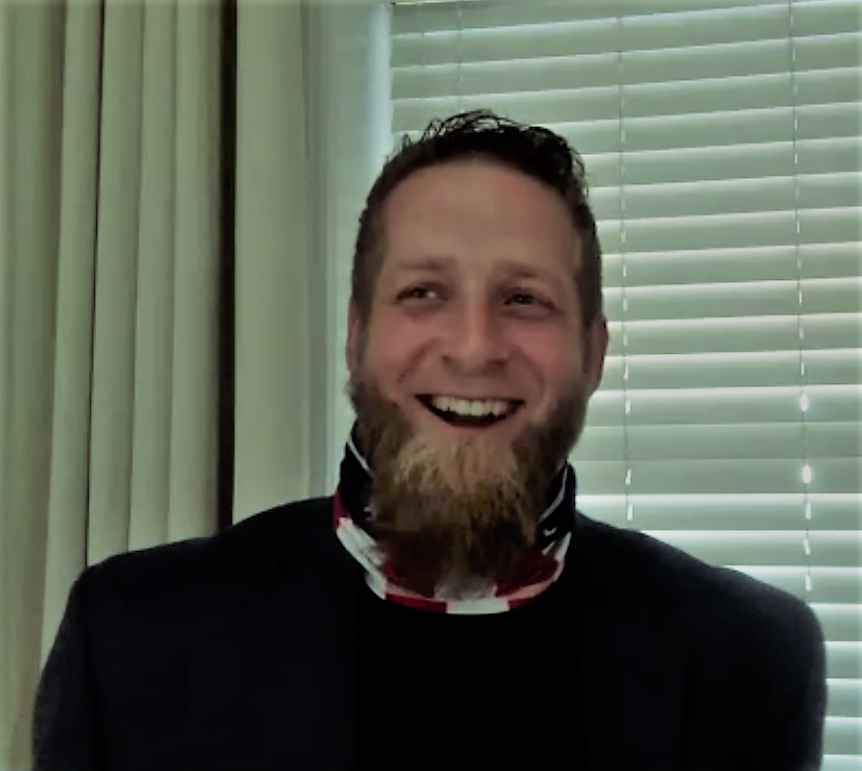
Jeff Wenzel, Mayor of Holly Ridge, NC, and fellow Kiwanian gave the Club an update on happenings in the second, fastest-growing small town in North Carolina. Holly Ridge is a gateway to Topsail Island, but also strategically located between Wilmington and Camp Lejeune on US 17, a major corridor in eastern NC. Thus, a focus for Holly Ridge is commercial growth that brings new industries who customers can be served by US17.
Mayor Wenzel touted the recently-completed Phase 1 of the Camp Davis Industrial Park , which is a large 60 acre tract adjoining US17 that has 45 acres developed containing 11 commercial lots of which 9 have been sold. Jeff moved his photography and graphics company to one of buildings in the Park. Other small businesses have also moved into the Park. A major tenet is Onslow Bay Boatworks, a high end boat builder, who has consolidated its operations into the Park. A second major tenet will be Atlantic Seafood, the major supplier of fresh sea food in eastern NC and beyond. Both companies are bringing high paying jobs to Holly Ridge. Crete Concrete has also opened a ready mix plant in the Park. With the immediate success of Phase 1, plans for expansion of an additional 60 acres for Phase 2 are underway.
Holly Ridge has a small town appeal that has attracted many new residents. Given the close location of Wilmington, Jacksonville, and Camp Lejeune, opportunities for nearby employment that are easily accessible by US17 has led to Holly Ridge’s second-fastest growing, small town moniker. No doubt the Hampstead US17 highway bypass under construction will result in continued growth for Holly Ridge both commercially and residentially.
Citizen surveys have shown a demand for additional recreation facilities and programs in Holly Ridge. Plans are underway to make improvements to the ball park in town as well as adding additional sports opportunities for the ball/municipal park facility. Plans also include adding walking paths to the municipal park as well as developing a dog park so popular in many towns.
This past summer the Town partnered with the Surf City Park and Recs Department to host a summer camp in Holly Ridge. This collaboration between Surf City and Holly Ridge will continue with other programs for kids as well.
Discussions are underway to develop a multi-use path corridor between Holly Ridge and Surf City so that bicyclists, walkers, runners, and other users could one day travel between their home in Holly Ridge and the Topsail Island ocean shoreline without the need for carbon-emitting, vehicular transportation.
Jeff mentioned the NC Coastal Federation research facility at Morris Landing where the Federation continues to seek improvements in their model for ‘living shorelines’ i.e. those constructed with bags of oyster shells to break up wave action along the shoreline and then planted with marsh plants behind the bag sill to stabilize the marsh from erosion. Parking and a pier is available for visitors to observe living shorelines in action.
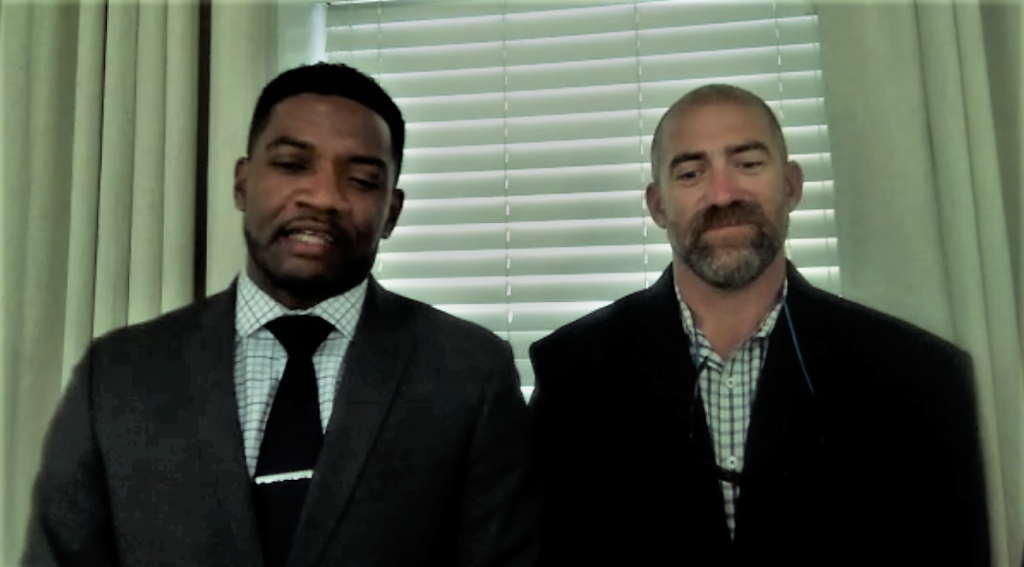
Mayor Wenzel also introduced the newly-appointed Chief of Police, Michael Sorg, Jr. and Captain CJ Waddell both of whom have had previous experience working together in different law enforcement capacities.
Improvements to Town Hall have been made and expansion of the facility are in the planning stages so that the Town can meet its growing demand for services.
To learn more about the Town of Holly Ridge, click here for the Town webite
Club Training
Dr. Edna Smith, Ph.D.
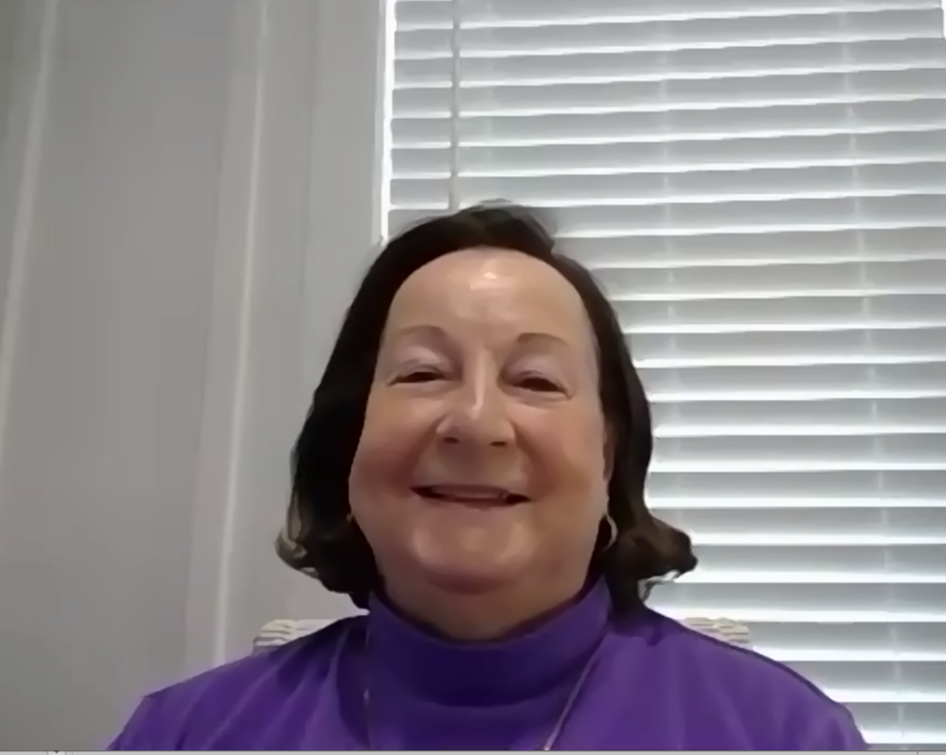
Edna Smith, Ph.D. assisted the Club in our annual review of the Kiwanis Youth Protection Guidelines. Edna has made this training activity a priority for her contributions to the Club and this year was no different. She was informative and concise as she went through the policies. Edna had already provided the Youth Protection Guidelines policies for 2020, a web resource list for working with youth and a quiz sheet to be sure we were paying attention to her.
Now if you missed our Zoom meeting with Edna, you will have to self study the policies(below) and fill in the training worksheet (below) as you study the policies.
Once you have completed your training worksheet quiz you can check your answers against Edna’s version below. Thanks, Edna. Some of us need help more than others.
Boys and Girls Homes
Mason Fuller Smith
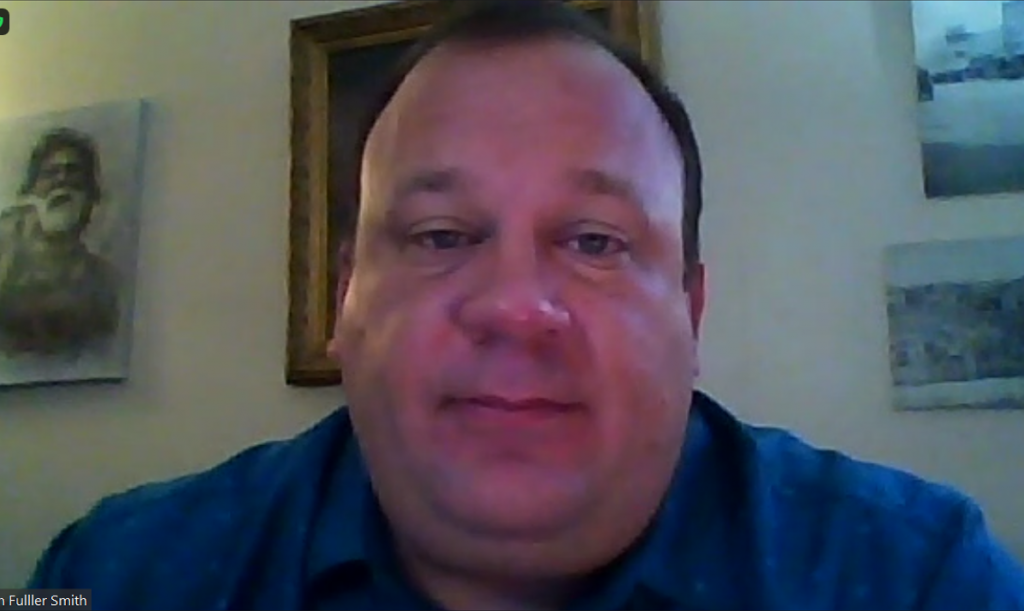
Mason Fuller Smith, Director of Civic Club Relations, with Boys and Girls Homes of NC was introduced by Carrie Hewitt, Club President-Designate.
Mason was raised on a small farm just along the Columbus/Bladen County line. After graduating from Whiteville High School, Smith went on to earn degrees in Religion and Christian Ministries from Campbell University and a Master of Divinity from Duke University, before completing his education with a Doctor of Ministry focused on healing cultures from Columbia Theological Seminary.
For over 20 years he has served among the poor, powerless, and marginalized as a missionary, minister, and outreach director through a number of organizations and churches. Now he seeks to use his skills to tell the story of the Children of Boys and Girls Homes, and spread awareness of their unique and fragile needs. Mason joined the Homes’ staff in March of 2019, taking the baton from Gary Greene.
Mason related his work at the Boys and Girls Homes from his previous experience as a minister and the late night calls with people in crisis, who needed someone to help them through their crisis no matter the hour. Mason tries to learn something from everything and these experiences have helped him at B&GH.
Mason talked about kids who first come to the B&GH relating that these kids know they are labeled like worthless, no good, thug, etc. This lie is the first thing about the B&GH that staff works to overcome. We believe every kid has value and that their true label is excellence. We have to help them discover their true label during their time at the B&GH.
Mason related the story of Tommy who came from a tragic background. “My name is Tommy and I am a worthless piece of s***,” his dad told him that every day. Trauma informed therapy, seeks to bring healing to the root of the problem – counselors, Kiwanis support, school, beauty of campus are all components that work together to help kids learn their true self-worth. Several years later when Tommy was transitioning out of B&G Homes said when asked who he was said, “I am child of God.”
Another story Mason related was about Cora a juvenile who was monitored with ‘jewelry’ when she arrived at the B&G Homes due to her criminal offense. She was not a receptive child, but we showed her love, and affection. After a bible study she said “I would like to help to do next message.” Mentorship between her and staff developed and the next Sunday, it was positive effect, as all the individuals (kids and staff) came together for her.
Child Advocacy Center
Over the years we have added to our programs. We realize that since so many kids in need will never come to our campus, we began about 20 yr ago a community-based program known as the ”Child Advocacy Center.” Under this umbrella we instituted a foster care program that eventually led to an adoption program. We also have “Project Hope” for anyone in the community which aims to bring families back together through healing and therapy,.
Thomas Academy
Thomas Academy, a county-wide school, for kids left out in traditional schools. The vision of Thomas Academy is to be a school that serves the whole child and helps them find connections, compassion, and character. Mason related, connections with others, you are not alone; compassion to have the sense of care for other humans; and character to know what is right or wrong. Mason used his favorite comedian Jerry Clower’s, ‘is this shirt dirty’ example of ethics to know what to do when there is no rule.
Kiwanis Cottage
Mason said our club partnership has made a difference, standing toe to toe caring for the needs of children, but I have never seen a Kiwanian not care about a child. During the last two years, both Kiwanians Nicki Swafford and Carrie Hewitt have made the Kiwanis Cottage a passion for giving. Sharing with the girls in the cottage the joy of learning to cook has brought a new level of sense of accomplishment and self-worth among the girls. Once COVID restrictions are lifted, they plan to continue their regular visits.
Finally, Mason responded to questions about B&GH saying that finding new sponsors was critical in this time of financial uncertainty with current sponsors who themselves face a challenging financial environment. Many civic clubs like Kiwanis have seen a significant loss in club funding and he expects next year will see a drop in contributions to B&GH. Mason also related that about 6-8 girls occupy the Kiwanis Cottage at any one time, so that over the course of a year about 20-30 girls will pass through the cottage.
Rich Pollard, Club President, thanked Mason for his inspiring presentation.
Kiwanis scholarships for B&GH
President Pollack noted to the audience that our Club now gives two academic scholarships to graduating seniors at B&GH. This year the scholarships of $1,000 each went to Hunter, an academically gifted student with the highest GPA in his class who manages time well, and to Caitlyn who is a caregiver, a member of the Kiwanis Cottage with a serving spirit, and a heart for children who will study for a degree in social work.
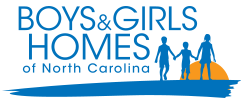
Click on logo to visit the Boys and Girls Homes of North Carolina
Dixon High School
Renee Jones
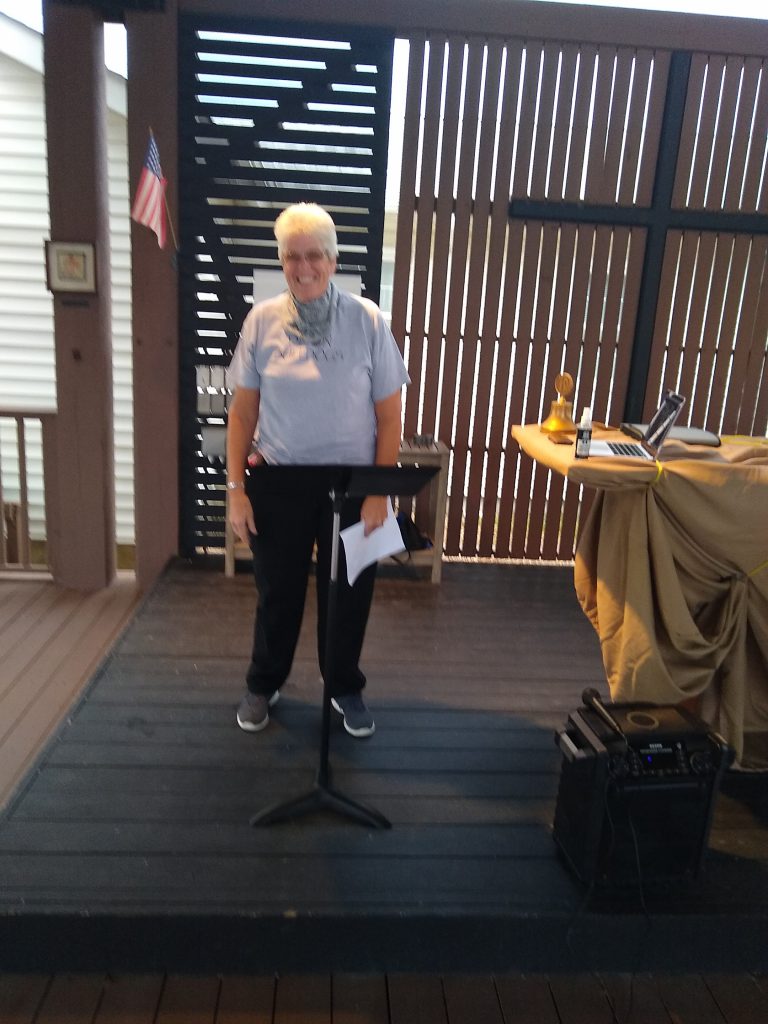
Carrie Hewitt, Club Vice-President, introduced Renee Jones, Social Worker, at Dixon High School. Renee then gave the Club an update on the counseling and assistance programs she coordinates at the school. She first thanked Kiwanis for the fundraising financial support the Club has given the school. She noted how our over $1,500 dollars of support went to various needs of the students such as clothing, shoes, fidget toys for nervous students in counseling, paying off lunch debt so the kids could get school lunches again. She said her school supply inventory was sufficient for now.
Renee described the new normal for school sessions to prevent spread of COVID-19. High students are divided into two cohorts A and B. Cohort A attends in person on Monday and Tuesday and then stays home to learn virtually on Wednesday, Thursday, and Friday. Cohort B attends in person on Thursday and Friday, but learns virtually from home on Monday, Tuesday and Wednesday. There are no students at the High School on Wednesdays to allow teacher time to organize for virtual learning assignments and hold teacher coordinating meetings with their fellow teachers. This open day at school also gives the school maintenance staff time to sanitize common areas in the school building.
One the biggest problems for students with the at home learning cycle is access to the Internet especially in rural areas of the school district. While students can ‘Drive in to Connect’ in the school’s parking lot, this is not always an option. Apparently, the Onslow County Board of Education has heard you Renee along with many other teachers and parents in announcing two COVID-19 relief funding efforts of $100,000 dollars each to set up better Internet connections throughout the County School District.
Renee continues in her role as school social worker by conducting home visits when needed, counseling students at school, and coordinating with teachers to be sure all students that need her help are getting it. She did note that student suicide rates have fallen this past year, in part to the family members ‘forced’ to stay home by COVID-19.
Renee noted that the community in general has been very responsive to students in need. She cited the Holly Ridge Food Pantry for their assistance with the Friday food bags for the weekend program. She said anytime she finds a student in need of clothing, shoes, etc. she can reach out to individuals in the community and the needed items ‘just show up.’ With the onset of cooler temperature, coats will be the next item in need.
Rich Pollard, Club President, thanked Renee for her presentation and encouraged her to continue her needed and appreciated social work.
Remote Learning Center
Katie White
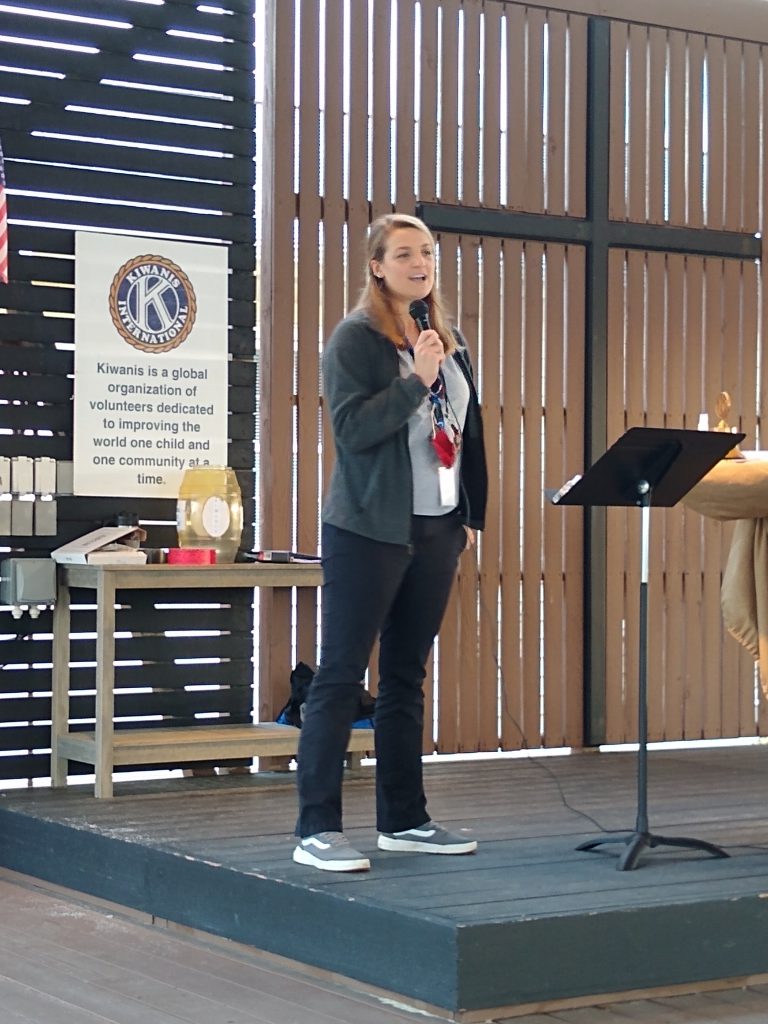
Katie White, Recreation Program Supervisor, with Onslow County Parks & Recreation spoke to the Club about a special program she directs that provides a ‘Remote Learning Center’ for elementary and middle school students when the county was under remote learning. Katie has spoken to the Club previously in her role as a parks and Recreation Superviser for Surf City.
Since taking on a similar position with Onslow County, Katie has continued her efforts to provide a learning and recreation environment for kids. With an innovative approach to funding through the national CARES act that provides funds for resources lost due to COVID-19, Katie came up with the idea to ‘extend’ summer camps by setting up a ‘Remote Learning Center’ for kids who were under a virtual learning mandate in Onslow County, so that parents who needed to go to work would have a safe place for their students to learn and interact with staff as well as to exercise (recreate) during the day.
In many cases, the remote learning center saved the family home situation since parents that had to work to earn had a very viable option to leaving their kids unattended during work hours. Although the daily fee is $10, Katie was able through the CARES program to even offer scholarships for those kids whose parents were in financial distress.
Katie found two locations for the Remote Learning Centers, one in the community center in Holly Ridge and the other in Jacksonville. The Holly Ridge location also serves kids from Pender County. About 150 students have participated in the program at the two locations so far.
Click on the link below for a description of the original program
Now that Onslow County schools are back to full time for elementary students, the Remote Learning Center program has changed to provide a safe alternative for Middle School students who are on remote learning for 2 days per week.
Click on the link below for a description of the current program which includes K-5 as well as middle school program for grades 6-8
Katie it was inspiring to us how you figured out a solution for kids that needed a safe place for remote learning and that solved a family problem for distressed families as well as provided for recreation in addition to learning.
Thank you, Katie for bringing this example of how just like the Kiwanis motto, ‘Kids Need Kiwanis’ you found a way to provide what Kids need in these challenging times.
Treasurer Report
Kevin Eitel, Club Treasurer
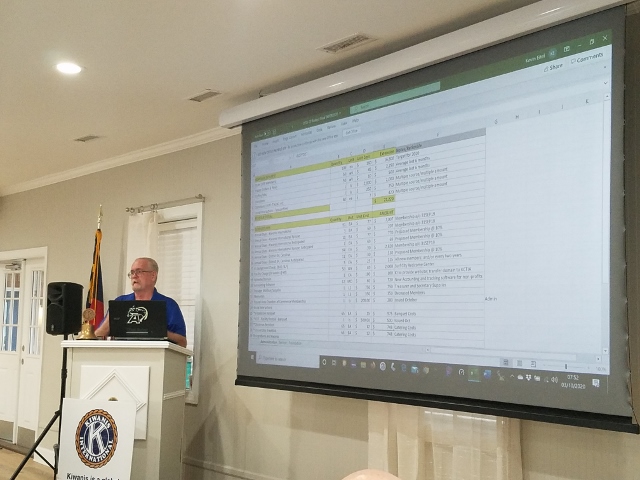
Kevin Eitel gave a semi-annual treasurer’s report to the club membership on Tuesday morning. Kevin noted that a new electronic bookkeeping system has been adopted that will allow members to pay dues and make contributions online. Additionally, payments can be made via debit or credit card, using Stripe and PayPal. This system should be ready when the next quarterly dues become due.
Further, there is a new electronic database that shows current status of dues for all members, as well as when their next dues payment is required. It automatically updates once payment is rendered, and adjusts for each quarter. He also described some changes in IRS rules that the club has, or will, address, for full compliance, related to Administrative [501(c)(4)] vs Service [501(c)(3)]; and that, as of this FY, we have separate bank accounts for each.
Kevin went through both the Service budget and the Administrative budget, and how income and expenses are assigned to one budget or the other. He moved the tracking of the Annual Scholarships to the Foundation for tax-exempt status, and noted that the Foundation had voted last week to contribute to sponsor the speaker at Boys’ and Girls’ Home at Lake Waccamaw on 21MAY20.
Kevin answered a few questions from the members about expenses and income. He also noted that, in general, the club is going to have to find additional income sources as we are just ‘breaking even’ each year with no fund surplus to carry us over in years when income drops. Finally, we need to find fundraisers to increase our Service Budget, including annual end of FY donations to the Club Foundation.
Warrior Canine Connection
Rick Yount, Executive Director
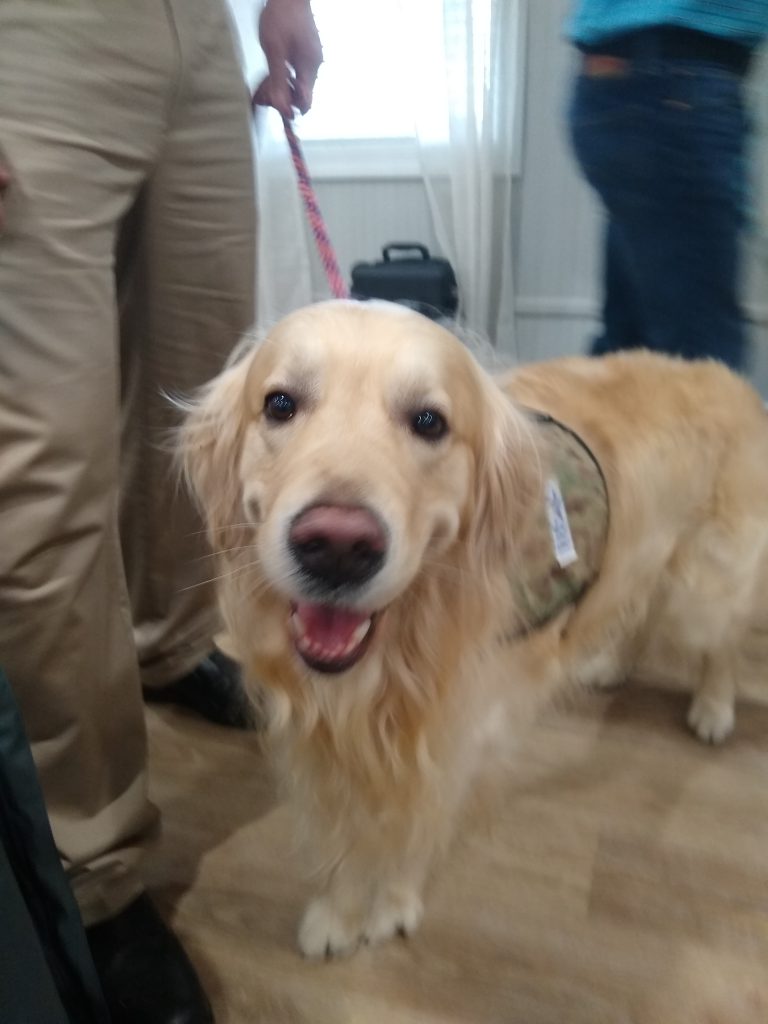
Hello! I’m Cooper! I’m training to be a WCC service dog
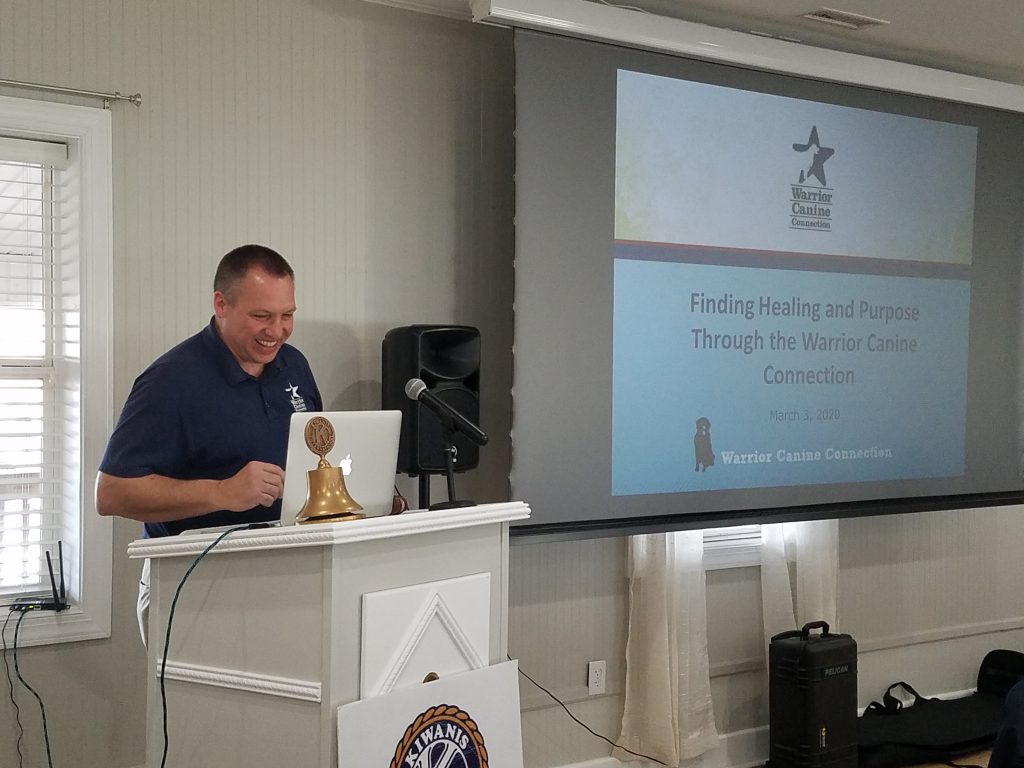
Rick Yount, Executive Director of the Warrior Canine Connection brought along his pal, Cooper to tell us about this unique program for servicemen with emotional and physical disabilities. Rick doing graduate work in sociology in California came up with the idea when visiting the veterans hospital in Palo Alto. Unlike most service dog programs which provide a fully-trained dog to the patient, WCC engages the patient by enlisting recovering Warriors in a therapeutic mission of learning to train service dogs for their fellow Veterans.
Mission:
Warrior Canine Connection is a pioneering organization that utilizes a Mission Based Trauma Recovery (MBTR) model to help recovering Warriors reconnect with life, their families, their communities, and each other.
“Rick’s new program concept, involving Veterans with PTSD in the training of mobility service dogs for fellow Veterans, has yielded very positive results. He has presented the program concept at forums including the VA National Mental Health Conference and the International Society of Traumatic Stress Studies.”
About Rick Yount ….
“Rick Yount has served in the field of social services for 30 years. He has involved animal-assisted therapy in his practice for the past 22 of those years. Rick holds a Bachelor of Arts from West Virginia University and a Master of Science in Assistance Dog Education. He combined his social work knowledge and experience with his service dog training background to develop a novel intervention to help Service Members with post-traumatic stress disorder (PTSD). Rick pioneered the first therapeutic service dog training program at the Palo Alto, California Veterans Hospital in 2008.”
Rick was invited by Cathi and Rob Safford, two of our newest club members, because they were aware of Rick and his program before relocating to Topsail Island. Their goal is get a Warrior Canine Connection facility operating in our area to support the warriors at Marine Corps Camp Lejuene. They are looking for volunteers, so please let Cathi know if you want to help in this very worthy cause.
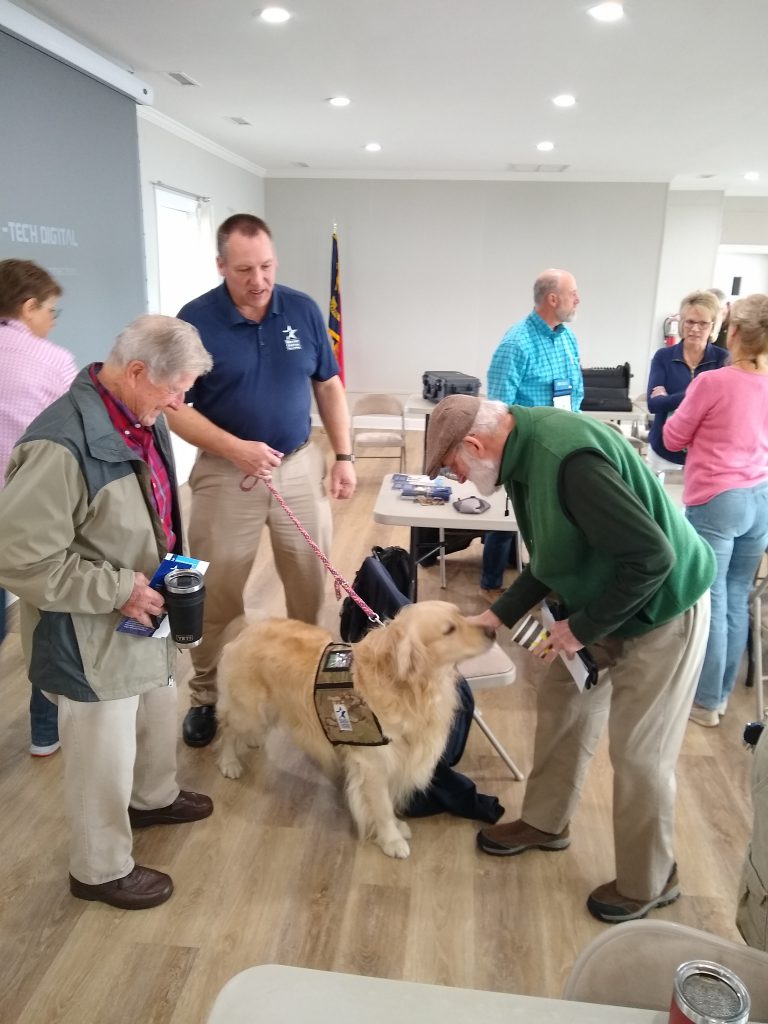

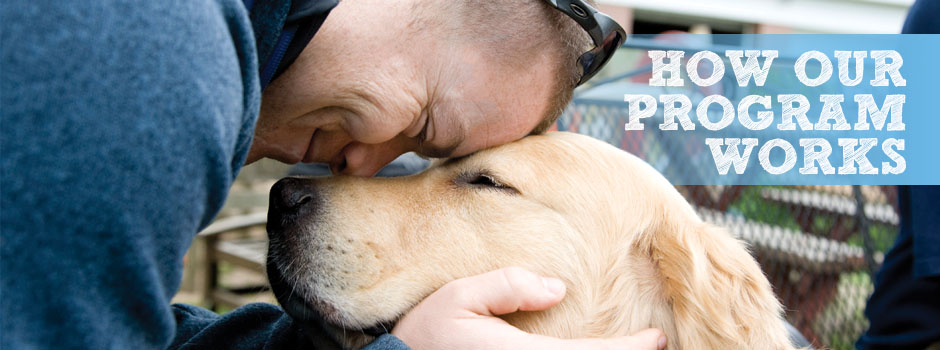
Last Updated: December 8, 2020 by mbenson Leave a Comment
StepUp Wilmington
Will Rikard, Executive Director
Will Rikard is the Executive Director for StepUp Wilmington, a leader in workforce development in the Cape Fear region of NC. During his seven-year tenure, the organization has grown to place over 200 jobs and serve over 400 individuals annually. StepUp Wilmington is a resource for unemployed and underemployed citizens in the Wilmington area. This non-profit partners with both adults and youth on how to get a job.
Will described that finding employment for participants is a two-step process in which participants start with the ‘Job Program’ as the first step. This step involves ‘Jobs Week’, during which participants learn the details of resumes, time management, appropriate dress code, and other details on how to prepare themselves for the job interview. Once Jobs Week is completed the non-profit works through a variety of avenues to find a job for participants.
Step 2 of the program is to work through long-term job stability. Participants work through an individual development plan that covers metrics on income and financial management, transportation, family situation, etc. to get to real job stability.
Normally, the program trains in person with about 15 new people every two weeks then works through job placement. With COVID, however, StepUp Wilmington tried moving to a more a virtual platform which resulted in its own challenges for the non-profit as it is tough for many people to communicate in a virtual environment as about half are internet insecure or don’t have a reliable internet connecting device. Child care and transportation issues also increases the dynamic for StepUp Wilmington to serve those in need. With the challenges of internet connectivity, Will said their program had changed again to a job focus operation where participants don’t need to meet online. This is a more individualized approach to offering training but if the participants can’t meet virtually they still work with them.
Of course there have been less jobs available due to COVID restrictions but there is also a participant fear factor with risk of contracting the virus in a particular job environment that might be open. Thus, some in higher COVID risk groups are fearful of accept a job that puts their health at risk.
New Things We Are Doing
Social enterprise staffing was launched in August with a business partnership manager added to place our talent into those available jobs with a goal of creating more employment plus generating revenue to support the non-profit’s ability to train participants.
Will also mentioned that StepUp Wilmington was selected for a grant from the Golden Leaf Foundation to expand the program into Pender and Brunswick counties. Although there is no planned physical presence in the two counties, the grant allows StepUp Wilmington to hire a person to focus on those two counties to recruit people and to get them into the program and then into jobs. Again social media, churches, and civic groups will be an important source of referrals as the program expands to Pender and Brunswick counties. He expects about 100 participants this next year in Pender with a 50% placement goal.
Questions from Kiwanians
How to make a referral?
–Referrals can be made by phone at 910 343 8469 or by internet at https://stepupwilmington.org/connect/contact-us-2/
What are employment goals – long-term vs short-term?
–Our goal is for participants to find long-term employment paying a living wage which is $12.20/hr for a single person and over $20 /hr for those supporting a family.
What kind of skill sets/qualifications are you looking for in participants?
–We seek people that are really motivated to want to work because this makes a difference in motivation from those that want to work versus those that don’t. Also, no pending criminal charges, no sex offenders, and/or have achieved a 90 day sobriety from substance abuse.
Where to you get referrals?
–Our referrals come by word of mouth from churches, non-profits, health care, social media and thus are really pretty broad based.
About Will Rikard
Will is a graduate of Wake Forest University, and played on the 1998 ACC championship baseball team. After college Will played five seasons of professional baseball in Europe and earned his MBA from American University. Will worked in the financial recruitment industry for 6 years in Washington, DC and Stockholm, Sweden before returning to his home state of North Carolina in 2012.
On the web at https://stepupwilmington.org/